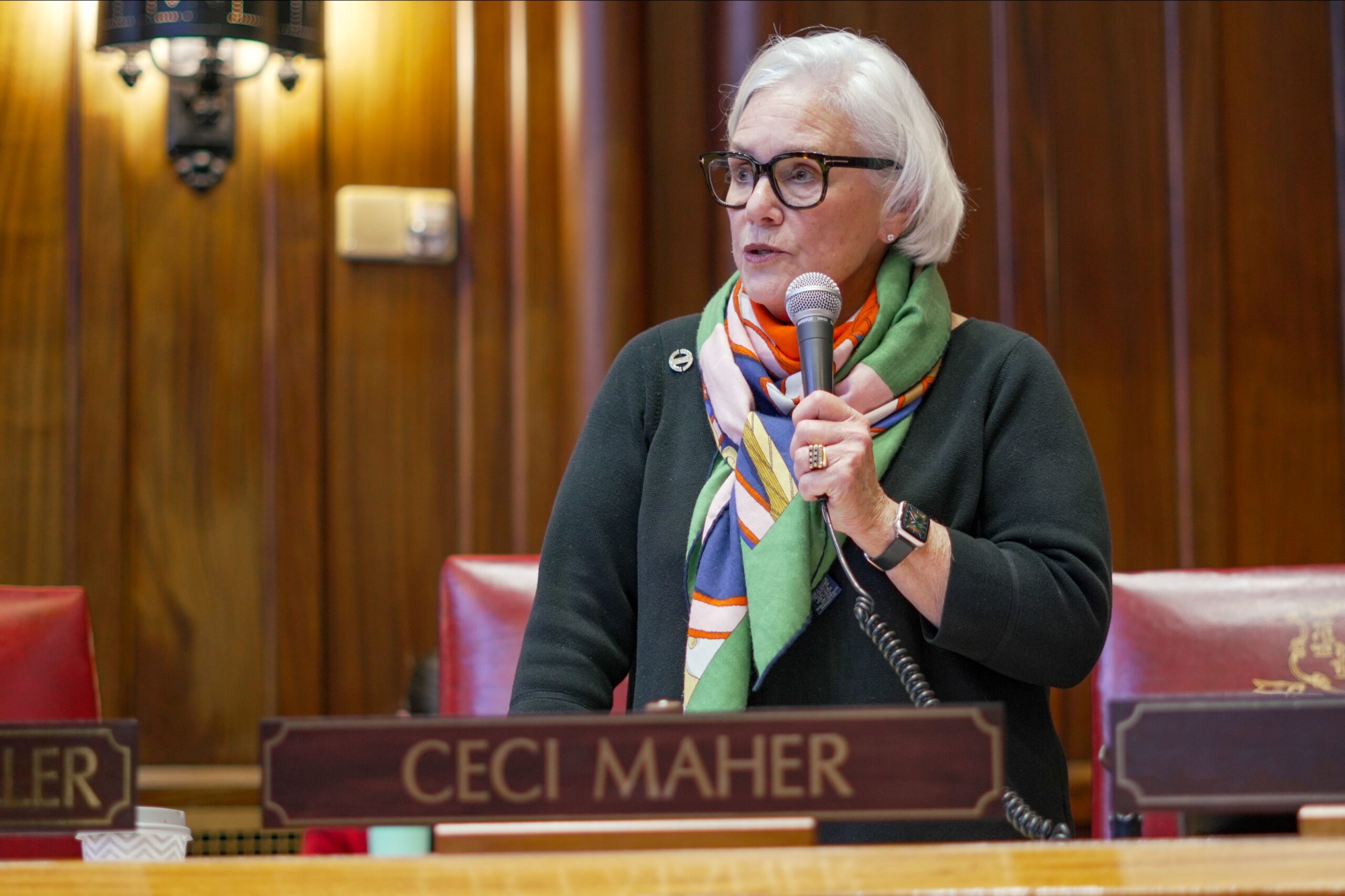SENATE PASSES LEGISLATION ALLOWING SCHOOLS TO INSTALL SAFETY SYSTEMS FOR BETTER EMERGENCY RESPONSE
Inspired by high school students, bill seeks to save lives during school emergencies

In an effort to ensure Connecticut never relives the horrors of the Sandy Hook Elementary school shooting, the Senate today passed legislation allowing for emergency response communications systems and personal emergency communication devices in Connecticut schools.
This legislation was inspired by two Staples High School students from Westport, Elijah Falkenstein and Zander Bauer, who proposed the idea to State Senator Ceci Maher (D-Wilton), Senate Chair of the Committee on Children. As students, they have been extremely concerned about school gun violence and were the leads of the school group Make Our Schools Safe, or MOSS.
They reached out after learning a similar personal emergency communications system in a Georgia school allowed for faster response by local police during a shooting. Local law enforcement said activation of the system at Apalachee High School in Winder, Georgia in September of 2024 likely saved lives, EducationWeek reported at the time.
Senate Bill 1216, “An Act Concerning School Emergency Response Systems,” would allow for the state’s school security infrastructure competitive grant program, signed into law in 2013 after the Sandy Hook Elementary School shooting, to be used for schools to purchase emergency response communications systems and personal emergency communication devices for school personnel.
“This bill was inspired by the very students it seeks to keep safe, and I’m very glad it is one step closer to becoming law,” said Sen. Maher. “Connecticut continues to work to make our schools and children safer, and allowing for installation of these safety systems – which have already been proven to quicken emergency responses in worst-case scenarios –will serve as a strong additional resource for pinpoint accuracy and immediate notification if something goes awry during the school day.”
“This legislation is a testament to what’s possible when young people engage with their government to bring about meaningful change,” said Senate President Martin Looney (D-New Haven). “By allowing schools to implement advanced emergency response systems, we are giving educators and first responders the tools they need to act quickly and decisively in moments of crisis. This is a thoughtful, student-driven approach to improving school safety, and I commend Senator Maher and the students for their leadership.”
Emergency response communications systems and personal emergency communication devices would likely resemble ones used in other schools across the country. Most prominently, the system at Apalachee High School saw teachers carry devices that served as panic buttons; when activated, those buttons would inform law enforcement that an emergency was happening on campus, Reuters said.
A shooting at that school that killed four was likely to have led to more violence if not for the activation of the system, police said at the time. Upon activation, police were on site within two minutes and the shooter was taken into custody within six minutes of initial alerts.
According to the Atlanta Journal-Constitution, such systems can activate general alerts and emergency alerts; the former stays within the school for medical emergencies or other incidents not requiring outside assistance, while the latter, for more serious events, would trigger flashing lights and a lockdown on a school campus. Most uses of the systems, more than 98%, remain within schools.
While these systems can be expensive, a fiscal note for the bill noted that there is currently an unallocated bond balance of $20 million for school security programs, which would be able to fund a number of installations.
This bill received strong support in public testimony, with the Connecticut Education Association, Connecticut Association of Independent Schools and Connecticut Catholic Public Affairs Conference among the organizations endorsing it.
The bill previously passed the Committee on Children with a unanimous 17-0 vote; it now heads to the House for further consideration and potential passage. If passed by the House, the bill proceeds to Governor Lamont’s desk to be signed into law.
Share this page:
